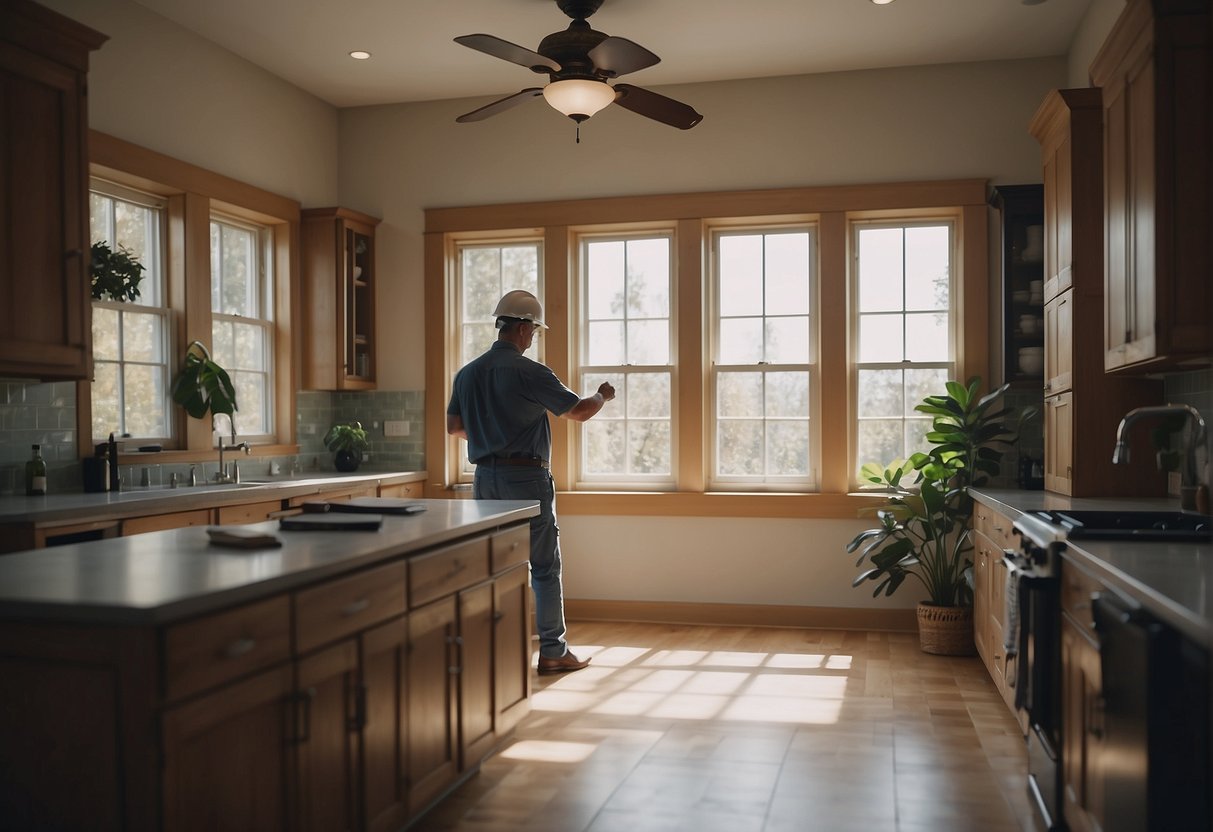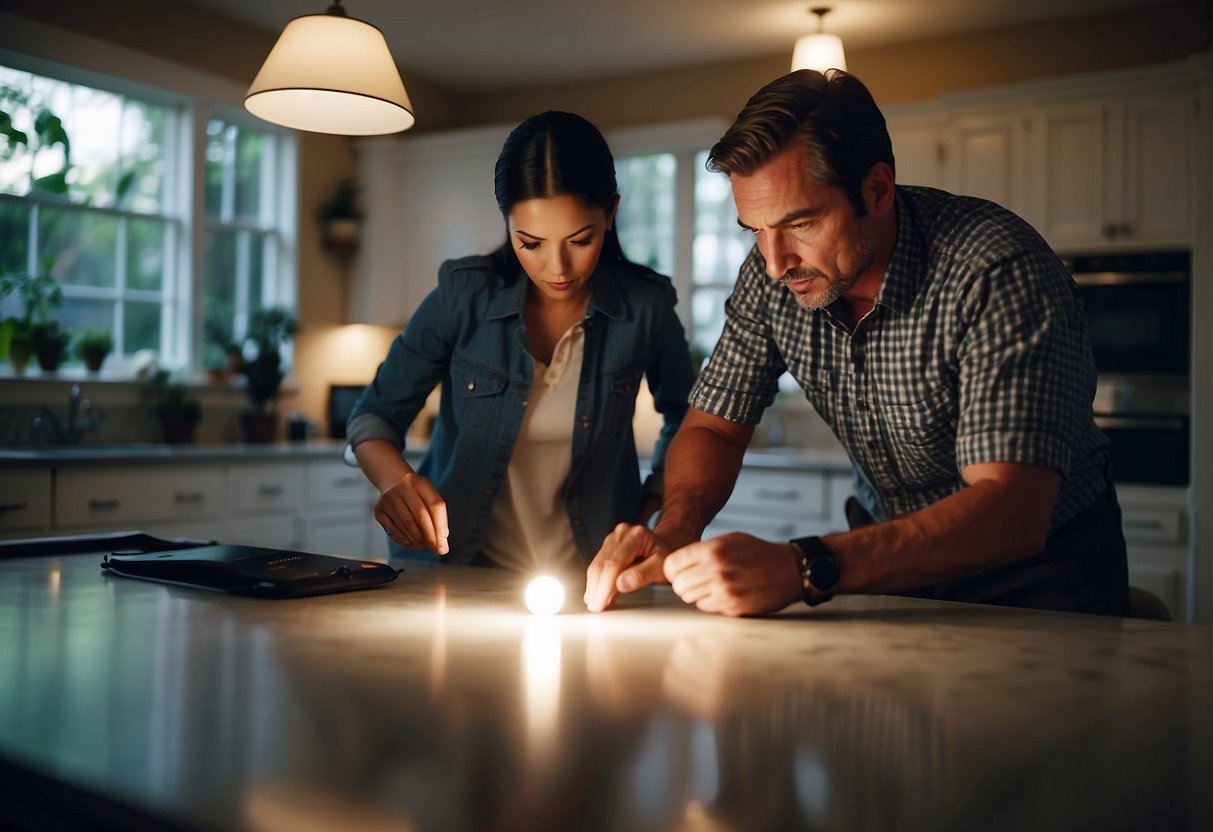When purchasing a property, buyers encounter various expenses, one of which includes closing costs. These costs are the fees and expenses paid at the closing of a real estate transaction, typically ranging from 2% to 6% of the purchase price. Closing costs encompass a variety of charges such as loan origination fees, appraisal fees, title searches, title insurance, taxes, and more. One common question that arises in this process is whether the cost of a home inspection is included in these closing costs.

The cost of a home inspection, which can typically run between $300 and $500, is a separate expense that is usually not included in closing costs. Home inspections are a critical part of the home-buying process as they provide the buyer with detailed information on the condition of the property. The buyer often arranges and pays for the inspection directly, usually right after their offer is accepted and well before the actual closing day. This enables the buyer to negotiate with the seller on price adjustments or repairs based on the findings, or even withdraw their offer if significant issues are uncovered.
It is important for both the buyer and the seller to have a clear understanding of which expenses fall under closing costs and which are handled separately. Knowledge of these costs will help in budgeting appropriately for the home purchase and avoiding any unexpected financial surprises at the close of the sale.
Overview of Closing Costs

Before venturing into the details of closing costs, it’s essential to understand that these are the various fees and expenses buyers and sellers incur to finalize a real estate transaction, separate from the home’s purchase price.
What Are Closing Costs?
Closing costs are an assortment of mandatory and elective fees and charges associated with the completion of a real estate transaction. They encompass a range of expenses that the buyer and seller typically share, although specifics can vary depending on negotiation and local customs. These costs are typically required to be paid at the time of closing when the property title is transferred.
- Loan-related fees: Involves charges for the origination and underwriting of the mortgage.
- Prepaids and escrow accounts: Buyers often prepay interest, taxes, insurance premiums, and sometimes mortgage insurance.
- Title-related fees: Includes title insurance, title search fees, and recording fees for the deed and mortgage.
- Third-party fees: Payments for services like the appraisal, credit report, and possibly a home inspection.
Typical Closing Cost Components
The components of closing costs are typically itemized on the closing disclosure. Here’s a breakdown:
- Origination fees: The lender may charge these fees to process the loan application.
- Discount points: A form of prepaid interest where one point equals one percent of the loan amount.
- Appraisal fee: Paid to a professional appraiser to assess the home’s market value.
- Credit report: A fee to access the credit history of the borrower.
- Title insurance: Provides protection against title disputes.
- Government recording charges: Fees to record the mortgage and deed.
- Survey fee: For verifying property lines (if required).
- Inspection fees: Although home inspections aren’t typically included in closing costs, they are important and usually paid outside of the closing process.
- Attorney fees: In some states, attorneys are involved in the closing process, adding to the costs.
- Prepaid interest: Interest that accrues between closing and the first monthly mortgage payment.
- Property taxes: Buyers might need to set up an escrow account for taxes and insurance.
- Escrow deposit for property taxes & mortgage insurance: Buyers might pay a couple of months’ worth of property taxes and mortgage insurance premiums at closing.
These fees can be substantial, regularly ranging from 2% to 5% of the loan amount. They’re critical for the buyer to budget for in addition to the down payment.
The Role of Home Inspection in Home Buying

The home inspection is a critical step in the home buying process, providing both the buyer and seller with an assessment of the property’s condition. It helps to ensure a fair transaction grounded in a detailed inspection by a certified professional.
Purpose of Home Inspection
A home inspection serves a vital function for the potential buyer. It is conducted by a licensed home inspector whose role is to thoroughly examine the property for any potential issues. During the inspection, key components of the house such as the structure, roof, basement, plumbing, electrical systems, and potential pest infestations are carefully assessed. The goal is to identify problems that could require significant investment or pose safety risks, thus providing a comprehensive picture of the property’s condition before the transaction is finalized.
Who Pays for the Home Inspection?
Typically, the buyer assumes the home inspection cost, which can be considered an investment into their future property. Inspection fees vary and are influenced by the size and location of the home. Sometimes, these costs can be negotiated to be included in the overall purchase price, effectively making them part of the closing costs. However, this isn’t always the case, and third parties like sellers rarely cover these expenses. The payment for the inspection usually occurs at the time of service, emphasizing that the onus typically rests on the buyer to ensure the investment is sound.
Home Inspection Costs
A home inspection is an essential assessment for a buyer to understand the condition of a property. The buyer typically bears the inspection fees, which are separate and not part of the closing costs. It’s critical to know the variations in cost based on factors such as the home’s age, size, and location.
Understanding Home Inspection Fees
Home inspection costs can vary widely and are influenced by the size of the home and its location. Fees are generally not included in closing costs and are paid directly to a licensed home inspector. As of 2024, typical inspection fees for an average-sized home range from $300 to $500, but can increase for larger or older properties that may require a more in-depth evaluation.
Additional Inspection Costs
Beyond the general home inspection, certain homes might necessitate additional inspections for pests, termites, mold, or lead paint. For example, a pest inspection specifically searches for signs of infestation and damage from critters like termites, which can be a significant issue depending on the age and location of the home. Costs can increase if these specialized inspections are needed:
- Termite/Pest Inspection: $75 – $150
- Mold Assessment: $200 – $600
- Lead-based Paint Inspection: $300 – $450
These additional services are vital for a thorough evaluation of the property, especially in older homes or areas prone to specific issues.
Negotiations and Closing Costs
When buyers and sellers agree on a sale price for a home, the focus often shifts to the various costs associated with finalizing the transaction. Among these, home inspections play a key role and can be a point of discussion during negotiations.
Negotiating Inspection Costs
Home inspections are a critical step in the home-buying process, providing buyers with an assessment of the property’s condition before finalizing the purchase. While typically not included in closing costs, the expense for a home inspection can sometimes be negotiated as part of the overall transaction. The buyer usually bears the cost of home inspections, which can range from $300 to $500, depending on the location and size of the home. However, buyers may negotiate with sellers to cover this cost as a concession.
In some cases, sellers may agree to pay for the inspection outright or offer to handle it as a credit at closing, which could be reflected as a deduction in the sale price or a credit in the escrow account. This negotiation is strategic and sometimes used to facilitate a smoother agreement, reflecting a willingness to share in the responsibilities and costs associated with the sale.
Negotiations can also bring real estate agent commissions into the conversation. Typically, this is a seller’s expense, but depending on how the negotiations unfold, there can be some sharing or redistribution of these costs. The final terms related to inspection and agent commission fees will be captured in the purchase agreement, turning informal negotiations into formal contractual obligations between buyer and seller.
Finalizing the Home Purchase
Finalizing the purchase of a home involves the settlement of closing costs, which are outlined in the closing disclosure that both buyers and lenders scrutinize to ensure accuracy and fairness.
Closing Cost Settlement
Buyers are usually responsible for covering the majority of closing costs, which can range from 2% to 5% of the mortgage loan amount. These costs include a variety of fees, such as those for loan processing, title insurance, and attorney charges. The funds are typically held in an escrow account until the purchase is finalized. Sellers might negotiate to pay a portion of these costs to expedite the sale.
Payments often include prorated property taxes and credits, which can affect the final amount that buyers need to bring to the table. Buyers should be prepared to verify all costs against their loan estimate documents to ensure no unexpected charges have appeared.
Understanding the Closing Disclosure
The closing disclosure is a document that outlines the terms of the mortgage loan, including the interest rates, monthly payments, and the appraised value of the property. It’s provided to the buyer at least three business days before the closing date to review. This crucial document must be checked thoroughly to ensure that the specified terms match those originally agreed upon in the loan estimate.
The loan terms, sale price, and closing costs detailed in the closing disclosure should be compared against earlier estimates to confirm their accuracy. The buyers must also verify their personal information, the escrow account details, and the prorated property taxes. Any discrepancies between the closing disclosure and the loan estimate must be addressed before the closing procedure can proceed.
Frequently Asked Questions
In the home buying process, understanding closing costs and their components is crucial. This section addresses common questions related to home inspection and its place within closing expenses.
What items typically comprise the closing costs for a home buyer?
Closing costs usually include several fees such as the loan origination fee, title insurance, appraisal fees, credit report fees, and local and state taxes. These fees vary based on the location and details of the transaction.
Are appraisal fees usually included in the home buyer’s closing expenses?
Yes, appraisal fees are generally part of the home buyer’s closing expenses, as lenders require an appraisal to assess the home’s value before approving a loan.
Who is generally responsible for paying the home inspection fee?
The home inspection fee is typically the responsibility of the buyer. Inspections are crucial as they identify potential issues a property might have, which are not typically included in the closing costs.
What can buyers expect to be the most significant expense in closing costs?
One of the most significant expenses in closing costs tends to be the loan origination fee, which is payment for the lender’s work in creating the loan. This fee can vary greatly but often constitutes a substantial portion of the total closing costs.
How can one calculate the estimated closing costs for a property in New Jersey?
To calculate estimated closing costs in New Jersey, buyers should consider fees such as attorney costs, recording fees, and prepaid items like property taxes and insurance. Online calculators or consultations with a local real estate agent can provide more specific estimates.
What is the average range for a home inspection cost within the state of New Jersey?
In New Jersey, the home inspection cost varies but typically ranges from $300 to $500. The final fee usually depends on the property size and its specific features or issues needing examination during the inspection process.
